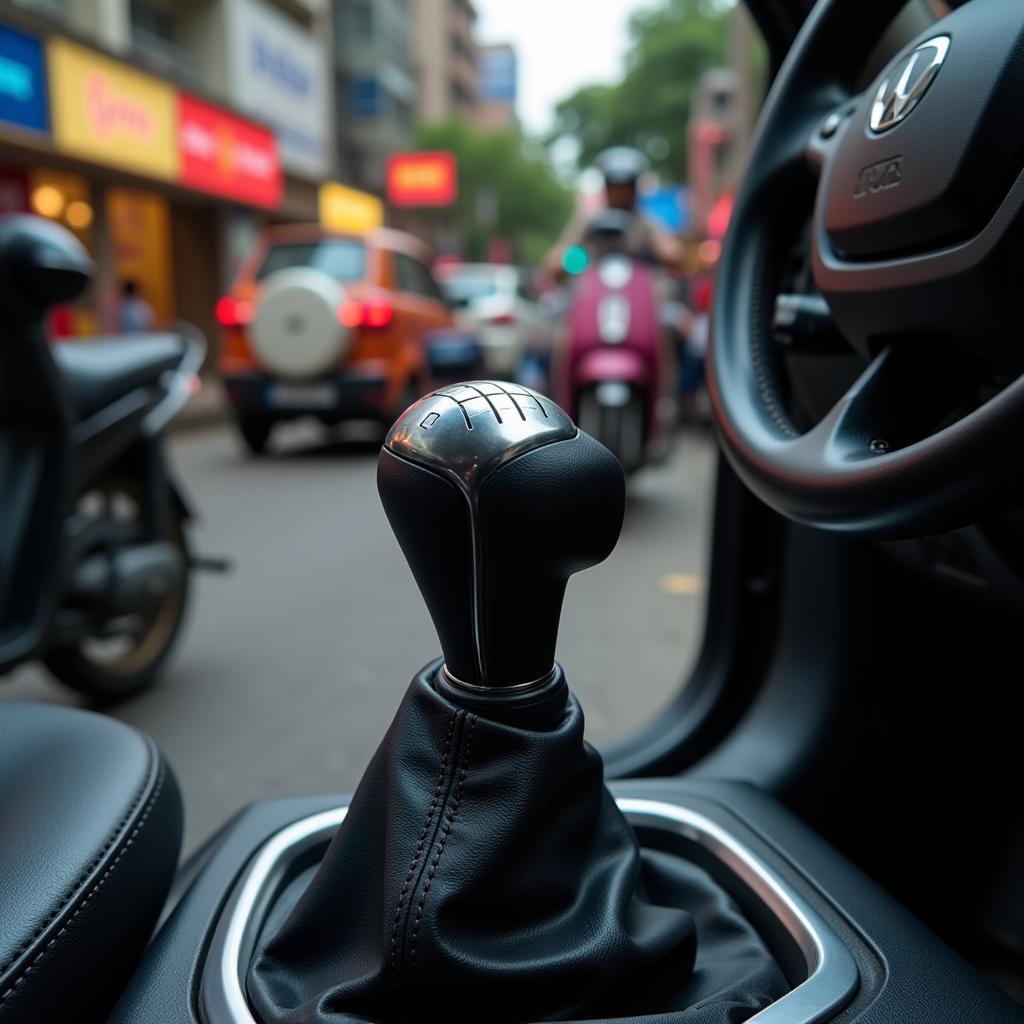Owning a car in India comes with its own set of joys and challenges, and when it comes to automatic transmission cars, certain issues tend to crop up more frequently. Whether you’re a seasoned car owner or a budding enthusiast, understanding these common problems can save you time, money, and unnecessary frustration. Let’s dive into the most prevalent issues and how to address them effectively.
Understanding the Indian Context: Why Automatic Transmissions Need Extra Attention
India’s diverse climate and often challenging road conditions can take a toll on even the most robust vehicles. Automatic transmissions, with their intricate mechanisms, are particularly susceptible to these factors.
 Automatic Transmission on Indian Roads
Automatic Transmission on Indian Roads
From extreme heat to dusty environments and frequent stop-and-go traffic, Indian driving conditions demand a proactive approach to car maintenance.
“In my experience, most automatic transmission problems I see in India stem from neglected maintenance,” says Rajesh Kumar, a senior mechanic with over 20 years of experience in Delhi. “Regular fluid checks and timely servicing can prevent a majority of these issues.”
Top 5 Automatic Transmission Problems in India:
Here are the most common issues you might encounter with your automatic car in India:
1. Overheating Transmission:
This is a prevalent problem, especially in hot weather conditions. Driving in heavy traffic for extended periods can cause the transmission fluid to overheat, leading to:
- Symptoms: Burning smell, slipping gears, rough shifting, and the “check engine” light illuminating.
- Causes: Low transmission fluid level, dirty fluid, faulty transmission cooler.
- Solution: Park the car in a shaded area and let the transmission cool down. Check the fluid level and condition. If low or dirty, top it up or schedule a fluid change at a trusted service center.
2. Slipping Gears:
One of the most alarming signs is when your car’s gears start to slip while driving. This means the transmission is not engaging gears properly, leading to:
- Symptoms: Engine revving high without acceleration, sudden jerks while driving, decreased fuel efficiency.
- Causes: Worn-out clutch packs, damaged solenoids, low transmission fluid.
- Solution: Slipping gears require immediate attention from a qualified mechanic.
3. Rough Shifting:
A smooth driving experience is one of the hallmarks of an automatic car. When your car jerks or hesitates while shifting gears, it indicates a problem:
- Symptoms: Clunking or banging sounds during shifting, delayed engagement of gears.
- Causes: Low transmission fluid, faulty shift solenoids, worn-out gears.
- Solution: Get the transmission fluid checked and topped up if needed. If the problem persists, consult a mechanic to diagnose and address solenoid or gear-related issues.
4. Torque Converter Issues:
The torque converter is a vital component that transmits power from the engine to the transmission. Issues with this part can severely impact your car’s performance:
- Symptoms: Shuddering or vibrating sensation at low speeds, lack of power, difficulty accelerating.
- Causes: Worn-out torque converter clutch, contaminated transmission fluid.
- Solution: Diagnosing and repairing torque converter problems requires specialized tools and expertise. It’s crucial to take your car to a reputable service center experienced in automatic transmission repair.
5. Sensor Malfunctions:
Modern automatic transmissions rely heavily on sensors to function correctly. A faulty sensor can disrupt the entire system:
- Symptoms: Erratic shifting patterns, the transmission getting stuck in a single gear, the “check engine” light flashing.
- Causes: Damaged or malfunctioning sensors such as the vehicle speed sensor, throttle position sensor, or transmission range sensor.
- Solution: Scanning the car’s computer for error codes can pinpoint the faulty sensor. Replacing the malfunctioning sensor is usually the most effective solution.
Preventive Measures: Keeping Your Automatic Transmission Healthy
Prevention is always better than cure, and this rings true for automatic transmissions as well. Here are some preventive measures to keep your car running smoothly:
- Regular Fluid Checks and Changes: Check your transmission fluid level and condition regularly, ideally every 5,000-10,000 kilometers.
- Timely Servicing: Follow the manufacturer’s recommended service schedule for your car’s transmission.
- Avoid Aggressive Driving: Sudden acceleration and harsh braking put unnecessary strain on the transmission.
- Use the Parking Brake: Always engage the parking brake, especially on inclines, to prevent stress on the transmission.
problems in indian cars often stem from a lack of awareness about the specific needs of vehicles in the Indian context.
“Investing in a good quality transmission fluid suitable for the Indian climate can make a significant difference in the lifespan of your automatic gearbox,” advises Anita Sharma, a certified automobile engineer based in Bangalore.
Conclusion
While automatic transmission cars offer a comfortable driving experience, they demand attention to maintenance, particularly in demanding conditions like those found in India. By understanding common problems and adopting preventive measures, you can ensure a smoother, hassle-free ownership experience.
If you’re facing any issues with your automatic transmission car, don’t hesitate to reach out to AutoTipPro. Our team of expert mechanics is well-equipped to diagnose and resolve any transmission-related problems.
Contact us today at +1 (641) 206-8880 or visit our office at 500 N St Mary’s St, San Antonio, TX 78205, United States. We’re here to keep your car running smoothly on Indian roads.






Leave a Reply